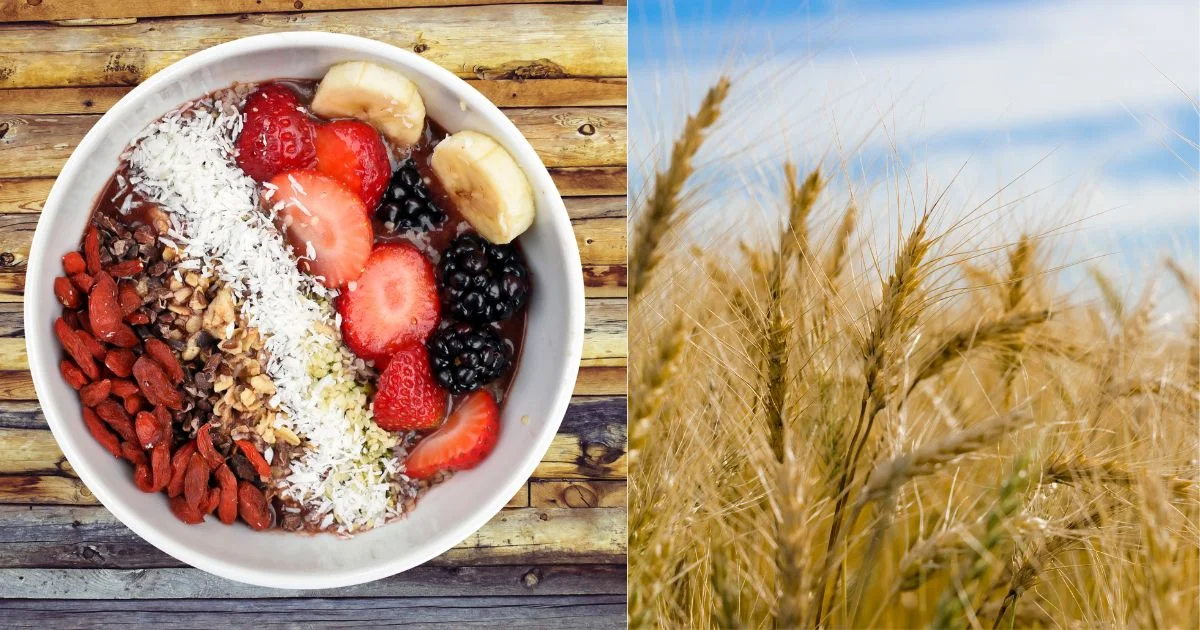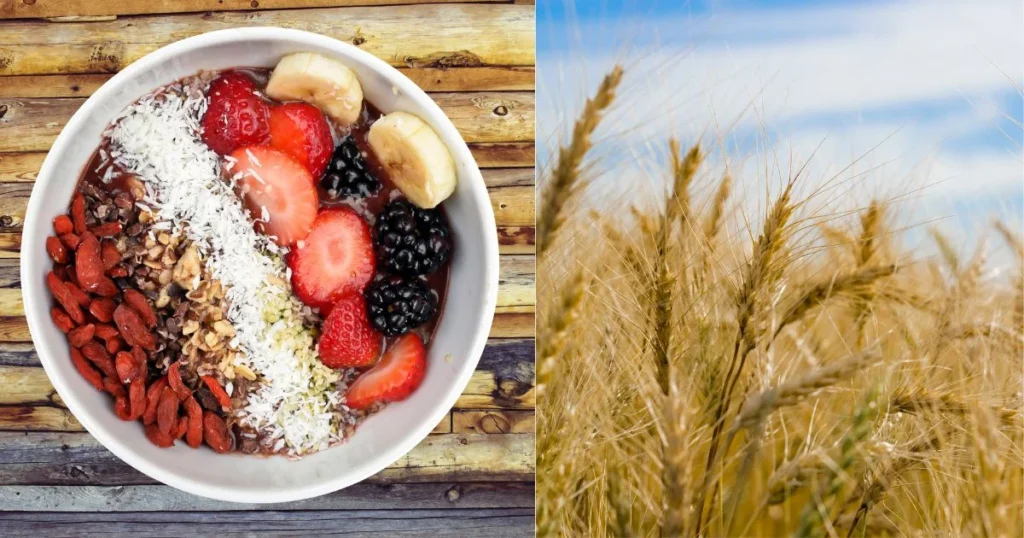What Does Fiber Do for the Body?
Fiber is an essential component of a healthy diet, often referred to as “nature’s broom.” It plays a vital role in maintaining digestive health and promoting overall well-being. But what exactly does fiber do for the body? In this comprehensive guide, we will explore the numerous benefits of fiber and why it is crucial to incorporate it into your daily diet. So, let’s dive in and uncover the wonders of fiber.
In today’s fast-paced world, where convenience often takes precedence over health, it is essential to understand the significance of incorporating fiber-rich foods into our daily diet. Fiber, also known as roughage or bulk, refers to the indigestible parts of plant-based foods that pass through our digestive system relatively intact. While our bodies cannot break down fiber, it plays a vital role in maintaining our overall health.
 What is Fiber?
What is Fiber?
Fiber is a complex carbohydrate found in fruits, vegetables, legumes, whole grains, nuts, and seeds. Unlike other carbohydrates, fiber cannot be digested by the body’s enzymes. Instead, it passes through the digestive system mostly unchanged. This unique characteristic gives fiber its remarkable health benefits.
Types of Fiber
There are two main types of fiber: soluble fiber and insoluble fiber. Soluble fiber dissolves in water and forms a gel-like substance in the digestive tract. It can help regulate blood sugar levels and lower cholesterol. Insoluble fiber, on the other hand, does not dissolve in water and adds bulk to the stool, promoting regular bowel movements and preventing constipation.
Benefits of Fiber
1. Promotes Healthy Digestion
Fiber acts as a natural regulator for our digestive system. It adds bulk to the stool, preventing constipation and promoting regular bowel movements. By keeping our digestive tract healthy and functioning optimally, fiber ensures efficient nutrient absorption and waste elimination.
2. Weight Management Aid
When it comes to managing weight, fiber is a valuable ally. High-fiber foods tend to be more filling, curbing hunger and reducing calorie intake. Additionally, fiber-rich meals take longer to digest, providing a prolonged feeling of fullness and helping us resist unhealthy snacking or overeating.
You may also like.20 Tips for Weight Loss Start Your Weight Loss Journey
3. Controls Blood Sugar Levels
For individuals with diabetes or those at risk of developing it, fiber plays a crucial role in blood sugar regulation. Soluble fiber slows down the absorption of glucose, preventing rapid spikes in blood sugar levels. By maintaining stable blood sugar levels, fiber contributes to better glycemic control and overall diabetes management.
4. Heart Health Booster
Consuming an adequate amount of fiber has been linked to a reduced risk of heart disease. Soluble fiber helps lower LDL (bad) cholesterol levels by binding to bile acids in the intestines, preventing their absorption. By reducing cholesterol, fiber supports cardiovascular health and decreases the risk of heart-related complications.
5. Enhances Gut Health
Fiber acts as a prebiotic, providing nourishment for the beneficial bacteria residing in our gut. These bacteria ferment fiber, producing short-chain fatty acids that promote a healthy gut environment. A well-nourished gut microbiota is associated with improved digestion, strengthened immunity, and even enhanced mental health.
6. Supports Healthy Weight Gain
While fiber is often associated with weight loss, it is equally important for healthy weight gain. For individuals looking to increase muscle mass or gain weight in a controlled manner, fiber-rich foods provide a nutrient-dense option. They offer essential vitamins, minerals, and energy, supporting overall weight gain in a balanced way.
7.Boosts Immune Function
Fiber acts as a prebiotic, nourishing the beneficial bacteria in our gut. These bacteria play a crucial role in supporting our immune function. They help regulate the immune response, enhance the production of immune cells, and improve the gut barrier function. A healthy gut microbiota, fueled by fiber, promotes a balanced and robust immune system, making us more resilient to infections and diseases.
8. Improves Skin Health
Healthy skin starts from within, and fiber plays a role in maintaining skin health. A fiber-rich diet aids in the elimination of toxins and waste products, preventing them from accumulating and potentially causing skin issues like acne. Additionally, fiber supports nutrient absorption, ensuring our skin receives the necessary vitamins and minerals for a vibrant complexion.
9. Provides Long-Lasting Energy
Fiber-rich carbohydrates, such as whole grains, provide a slow and steady release of energy. Unlike refined carbohydrates that cause blood sugar spikes followed by crashes, fiber-rich foods provide sustained energy levels throughout the day. This steady energy supply helps improve focus, productivity, and overall endurance.
10. Supports Healthy Aging
As we age, maintaining optimal health becomes increasingly important. Fiber-rich foods offer numerous benefits for healthy aging. They aid in digestion, prevent constipation, support heart health, and reduce the risk of chronic diseases such as diabetes and colon cancer. By incorporating fiber into our diet, we can promote longevity and enjoy a higher quality of life as we age.
Food Sources of Fiber
Including a variety of fiber-rich foods in your diet is essential to ensure an adequate intake. Fruits, vegetables, whole grains, legumes, nuts, and seeds are excellent sources of fiber. Some examples include berries, apples, broccoli, lentils, quinoa, almonds, and chia seeds.
How Much Fiber Should You Consume?
The recommended daily fiber intake varies depending on age, sex, and overall health. On average, adults should aim for 25 to 30 grams of fiber per day. However, it is important to gradually increase fiber intake to avoid digestive discomfort.
Tips for Increasing Fiber Intake
Increasing your fiber intake can be done through simple dietary modifications. Start by incorporating more whole fruits and vegetables into your meals, choose whole grains instead of refined grains, snack on nuts and seeds, and include legumes in your diet. It is also important to drink plenty of water to help the fiber move through your digestive system smoothly.
Potential Side Effects
While fiber offers numerous health benefits, consuming excessive amounts can cause bloating, gas, and abdominal discomfort. It is important to increase fiber intake gradually and listen to your body’s response. If you experience persistent digestive issues, consult a healthcare professional.
Conclusion
Fiber is a vital nutrient that plays a crucial role in maintaining a healthy body. Its benefits range from promoting digestive health to aiding in weight management, controlling blood sugar levels, and reducing the risk of heart disease. By incorporating fiber-rich foods into your diet and making conscious choices, you can improve your overall well-being.
Disclaimer:The information provided on this blog is for general informational purposes only. It is not intended to be a substitute for professional medical advice, diagnosis, or treatment. Always seek the advice of your physician or qualified health provider with any questions you may have regarding a medical condition.
FAQs
Does fiber help with weight loss?
Absolutely! Fiber-rich foods like fruits, vegetables, and whole grains are low in calories and high in volume. They promote feelings of fullness and reduce the likelihood of overeating, making them excellent choices for weight loss or weight management.
What are the best sources of dietary fiber?
Excellent sources of dietary fiber include whole grains, legumes, fruits, vegetables, nuts, and seeds. These foods not only provide fiber but also deliver a wide array of essential nutrients, making them valuable additions to any healthy diet.
How much fiber should I consume daily?
The recommended daily fiber intake varies depending on factors such as age and gender. Generally, adult men should aim for 30-38 grams of fiber per day, while adult women should aim for 21-25 grams. Remember to gradually increase your fiber intake to prevent digestive discomfort.
Can fiber relieve symptoms of irritable bowel syndrome (IBS)?
Fiber can indeed help alleviate symptoms of IBS. However, the type of fiber consumed plays a crucial role. For individuals with IBS, soluble fiber is often better tolerated than insoluble fiber. It's recommended to consult a healthcare professional or a registered dietitian for personalized advice.
Is it better to consume fiber from supplements or whole foods?
While fiber supplements can be beneficial in certain situations, it's generally recommended to obtain fiber from whole foods. Whole foods offer a range of other essential nutrients and phytochemicals, which work together synergistically to promote health. Supplements should be used under the guidance of a healthcare professional.


 What is Fiber?
What is Fiber?

